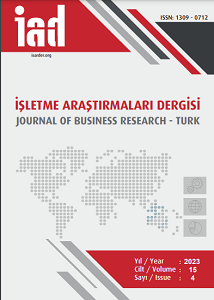Sürdürülebilir Kalkınma Bağlamında Gelir Eşitsizliği ve Yolsuzluk Algısı İlişkiselliği
Income Inequality and Corruption Perceptions Relation in the Context of Sustainable Development
Author(s): Gökçe Sinem Erbuğa, Ayşegül GürsoySubject(s): Business Economy / Management, Economic development, Corruption - Transparency - Anti-Corruption
Published by: Orhan Sağçolak
Keywords: Corruption; Corruption Perception Index; Income Inequality; Sustainable Development; Causality;
Summary/Abstract: Purpose – Although corruption brings a gain to the perpetrator, when evaluated in terms of societies, it causes very important results, up to the collapse of financial systems. In addition to the economic consequences of the increase in corruption, there are also social and environmental consequences. Therefore, it is not possible for us to ignore the interrelationships of corruption, income inequality and sustainable development. The aim of this study is to give detailed information about the concepts of corruption and income inequality in the framework of sustainable development and the relationship between them, as well as to reveal a possible correlation between income inequality and corruption in E-7 countries. Design/methodology/approach – In this study, which tries to measure and evaluate the relationship between income inequality and corruption on the basis of causality, corruption and income inequality data for E-7 countries were obtained from the official websites of the World Bank and Transparency International. To measure corruption, the corruption perception index (CPI); Gini Coefficient was used to measure income inequality. In this direction, CPI and Gini coefficient values between the years 2012-2022 are considered within the scope of the study. In order to reveal the existence of any causality between CPI and Gini coefficient, the Granger Causality Test was conducted in the Stata /BE 18.0 package program. Findings – According to the findings obtained as a result of the study, no causality was reached between income inequality and perception of corruption in E-7 countries between 2012-2022. Discussion – In this study, the possible effects of perceived corruption on income inequality are discussed within the scope of E-7 countries. Although it is argued in the literature that corruption and income inequality should be reduced in order to achieve sustainable development and that there is mostly causality between income inequality and corruption, no causality has been reached between the variables determined in the E-7 countries during the aforementioned years.
Journal: İşletme Araştırmaları Dergisi
- Issue Year: 15/2023
- Issue No: 4
- Page Range: 3011-3028
- Page Count: 18
- Language: Turkish

